Vitamin E - properties, effects, occurrence, dosage
Vitamin E has oxidative properties, cares for visual health and also supports the cardiovascular system.


Learn more about our editorial process
.

Learn more about our editorial process
.

Learn more about our editorial process
.

Learn more about our editorial process
.
Why you can trust us
Articles on Natu.Care are written based on scientific research, data from government websites and other reliable sources. The texts are written in cooperation with doctors, nutritionists and other health and beauty experts. Articles are reviewed before publication and during significant updates.
.Learn more about our editorial process
.Information about advertisements
Content on Natu.Care may contain links to products from the sale of which we may receive a commission. When creating content, we adhere to high editorial standards and take care to be objective about the products discussed. The presence of affiliate links is not dictated by our partners, and we select the products we review ourselves completely independently.
.Learn more about our terms and Conditions
.Vitamin E also known as the vitamin of youth is responsible for many functions in the body. It has oxidative properties, cares for eye health, and supports the cardiovascular system. Find out how to take advantage of the valuable properties of vitamin E.
Are you feeling irritable? Having trouble concentrating? Has your eyesight deteriorated? If the answer to these questions is yes, it is very possible that you are suffering from a vitamin E deficiency. It is extremely important for the health of our body. It reduces oxidative stress, reduces the risk of heart disease and also affects cognitive function. Learn all about vitamin E from this article.
Description of contents:
- What is vitamin E? .
- Properties of vitamin E .
- In which products is vitamin E found?
- Vitamin E deficiency .
- Excess vitamin E .
- Vitamin E - supplementation .
- Vitamin E during pregnancy .
- Interactions of vitamin E with medications .
- Summary .
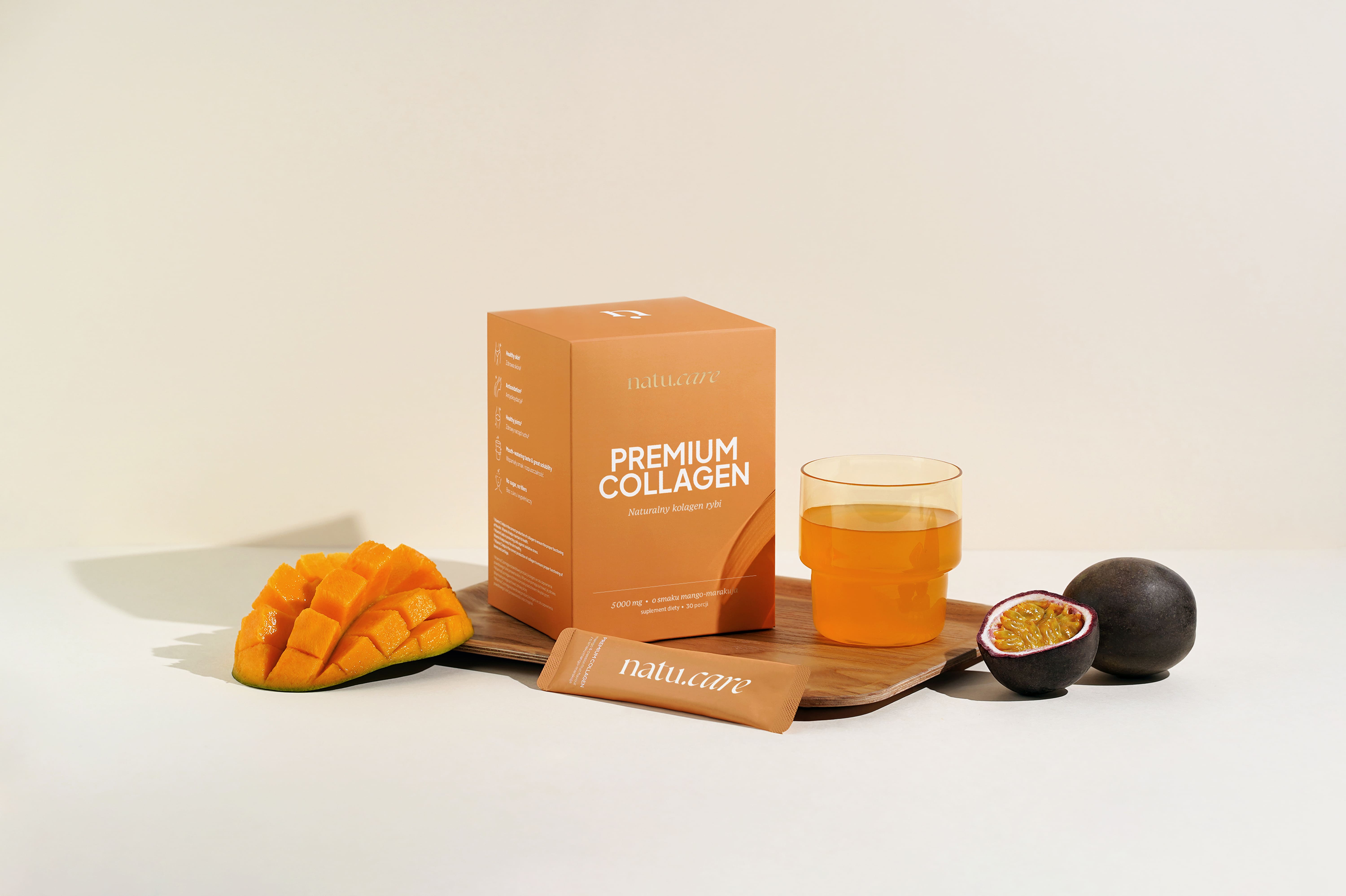
Sprawdź, za co pokochały go tysiące klientek Kolagen Premium 5000 mg, mango-marakuja
Natu.Care Kolagen Premium 5000 mg, mango-marakuja
Natu.Care Kolagen Premium dla zdrowia stawów, skóry, paznokci i włosów. Najlepsza przyswajalność. Optymalna dawka 5 000 lub 10 000 mg. Przebadany przez niezależne laboratorium.
Zobacz więcej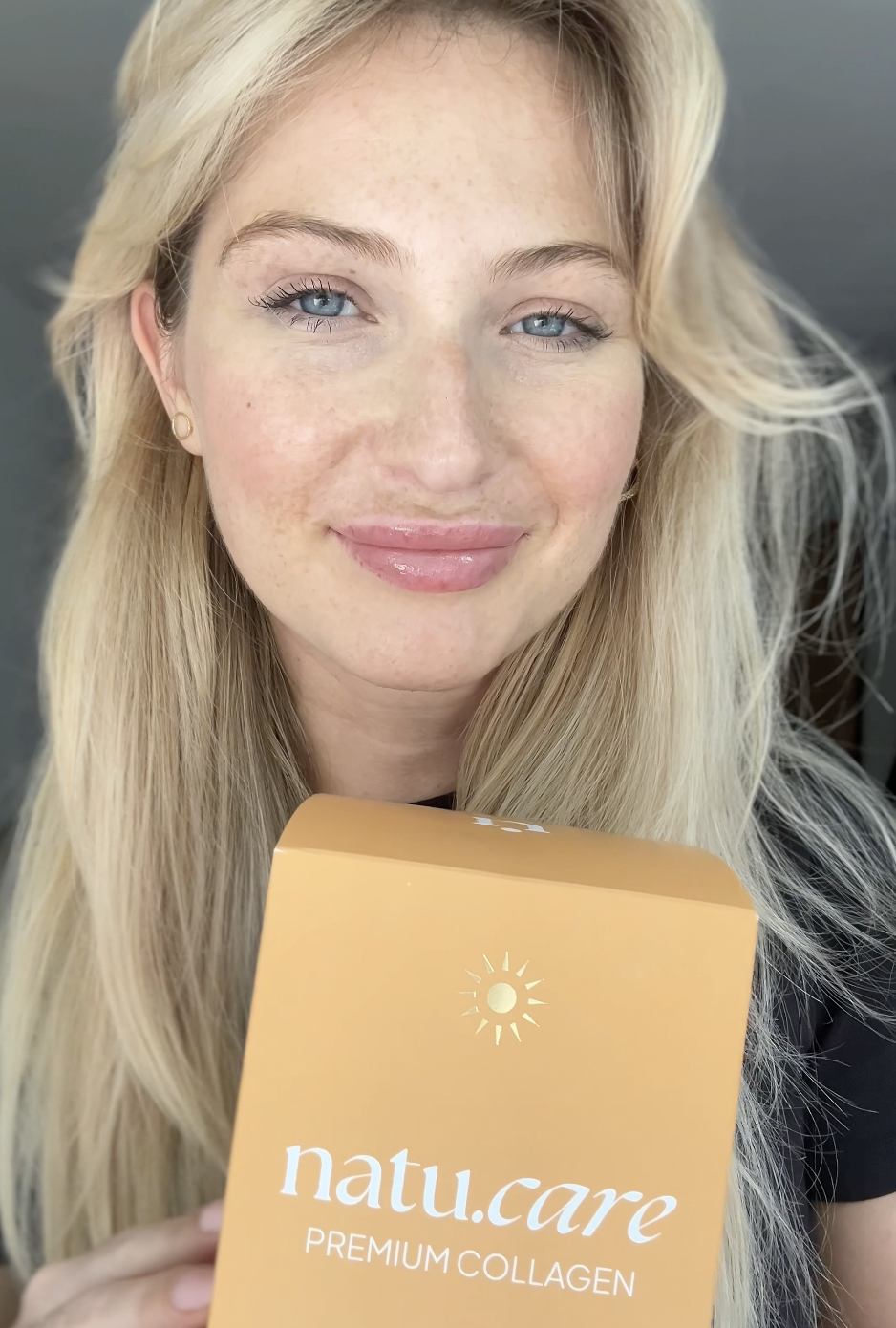
Wybrałam kolagen Natu.Care, ponieważ miał super opinie – a to było dla mnie bardzo ważne! Odkąd go stosuję, moja skóra znacznie się poprawiła i jest nawilżona, a na głowie pojawiły się nowe "baby hair".@Kasia S.
See also:
- Vitamin A ointment [for what and effects + ranking] .
- Vitamin A plus E [ranking + pharmacist's opinion] .
- Vitamin D3 drops [benefits + use] .
- Vitamin A [properties + occurrence and symptoms of deficiency]
- Vitamin D3 [action + dosage and supplementation] .
- Vitamin D [dosage] .
- Vitamin D overdose [expert opinion] .
- What is vitamin D? [top sources] .
- Vitamin D deficiency [symptoms] .
- Vitamin D3K2 [whether you need to combine + expert opinion]
- Vitamin D3 [which is best, for adults + for children]
- Vitamin K2 [properties + occurrence and contraindications]
- Vitamin K [where it occurs + what it helps] .
- ADEK vitamins .
What is vitamin E?
.
Vitamin Eand is a fat-soluble vitamin found in several forms. It consists of eight compounds, the most important of which is alpha-tocopherol.
Vitamin E acts as an antioxidant - neutralising free radicalsand. It also affects the immune and circulatory systems. It is essential for the proper functioning of the body.
Properties of vitamin E
.
Vitamin E plays many roles in the body. It is renowned for its antioxidant properties, but it also has a number of other benefits.
Vitamins are compounds that are essential to our health. We are unable to produce them ourselves - vitamins must be taken in with the diet. Vitamin E is no different. Most people take it with food, but sometimes this is not enough. In such cases, supplementation is indicated..
 .
.
Magdalena Ciura Pharmacy technician
.Antioxidant activity
.
Oxidative stress leads to damage to the body's cells, as well as an increased risk of diseases such as multiple sclerosis or Parkinson's or Alzheimer's diseaseand. Vitamin E is a very powerful antioxidant. Studiesand suggest that its supplementation reduces oxidative stress and also enhances antioxidant protection.
A-tocopherol in the diet (100 mg/kg) reduces the negative effects of tobacco smoke associated with inducing oxidative stress..
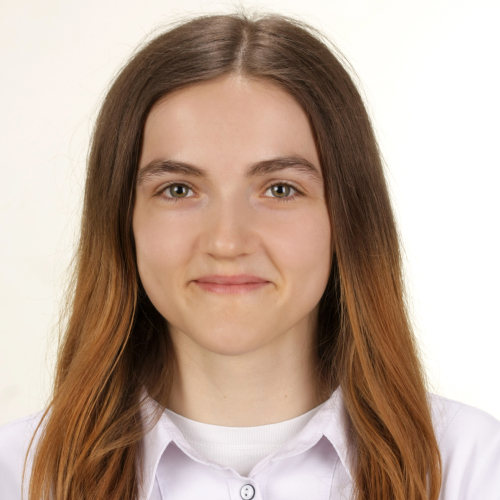 .
.
Marta Kaczorek Clinical nutritionist
.
Reducing the risk of heart disease
.
High blood pressure and bad cholesterol increase the risk of heart disease. Research indicates that taking vitamin E, reduces the likelihood of these conditionsand. It is worth noting that supplementation vitamin of youth with omega-3 acids also reduces the risk of heart diseaseand.
You can read more about omega-3 fatty acid supplementation in the text: Omega-3 in tablets: ranking the best products
.
Promoting skin health
.
Vitamin E is an ingredient in many cosmetic productsand. It softens the skin, reduces dryness and protects against the effects of sunlight. Preliminary research suggests that vitamin E has anti-cancer, as well as photoprotective properties .
Vitamin E has beneficial applications not only in medicine, but also in the cosmetic industry. It makes the skin more elastic, reduces the ageing process and prevents skin disease and inflammation. It has a soothing effect..
 .
.
Magdalena Ciura Pharmacy technician
.Collagen also supports skin health. Are you interested in its effects? Take a look at my article about collagen!
Reducing menstrual pain
.
Menstrual pain is mainly manifested by cramps in the lower abdomen. One studyand suggests that supplementation vitamin E, alleviates them. What's more, the effects of supplementation were even better when the youth vitamin was taken alongside omega acids.
Enhancing cognitive function
.
High concentrations of vitamin E in the body are associated with improved cognitive functionand. The youth vitamin has antioxidant properties and therefore prevents cognitive decline. Despite this, there is still a lack of solid research confirming its counteraction against, for example, Alzheimer's disease.
Vitamin E is essential for the production of male sperm. This has an important impact on male fertility. Furthermore, it has an important function in the synthesis of anticoagulant factors and reduces platelet aggregation..
 .
.
Marta Kaczorek Clinical nutritionist
How else does vitamin E work?
.
- Positive effects on lung functionand. .
- Prevents psoriasis eczema .
- Promotes healing of wounds .
- Reduces the risk of developing macular degeneration (AMD) . .
Vitamin E regulates blood sugar levels and also supports cardiovascular health..
 .
.
Magdalena Ciura Pharmacy technician
.In which products is vitamin E found?
.
Most people easily get enough vitamin E from their diet. Which products contain the most of it?
.
Today I have taken vitamin E on the agenda. However, it is very often found in dietary supplements with other fat-soluble vitamins. Want to know more about the vitamin A, D or K? Click on the letter corresponding to a vitamin and you will be taken to its little world!
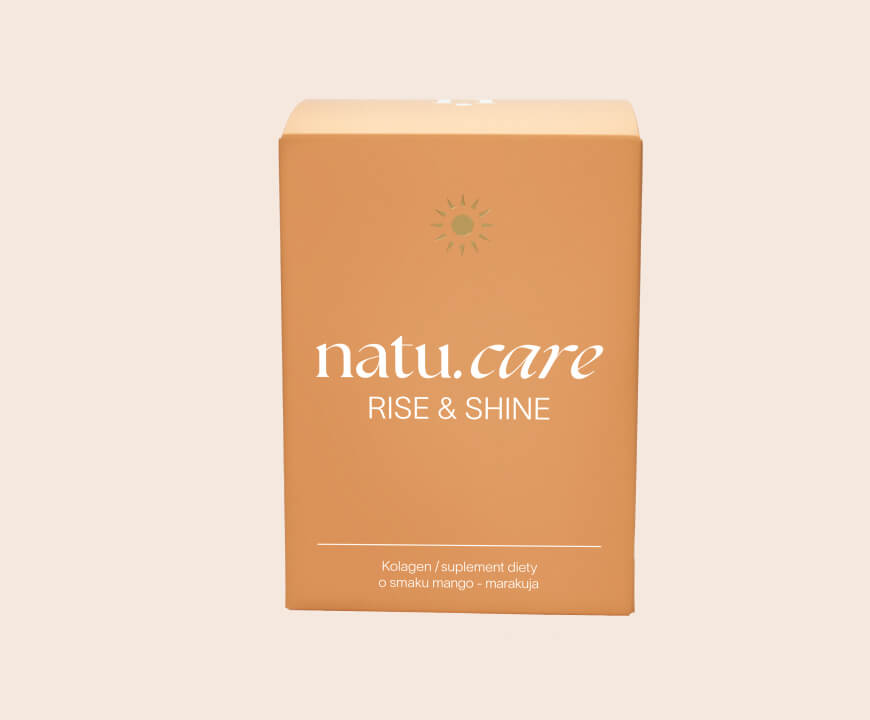
Rise&Shine: Collagen (5000 mg) in Mango-Maracuja flavour
Rise&Shine is collagen (5000 mg) in Mango-Maracuja flavour. Proven formulation, great bioavailability and refreshing taste.
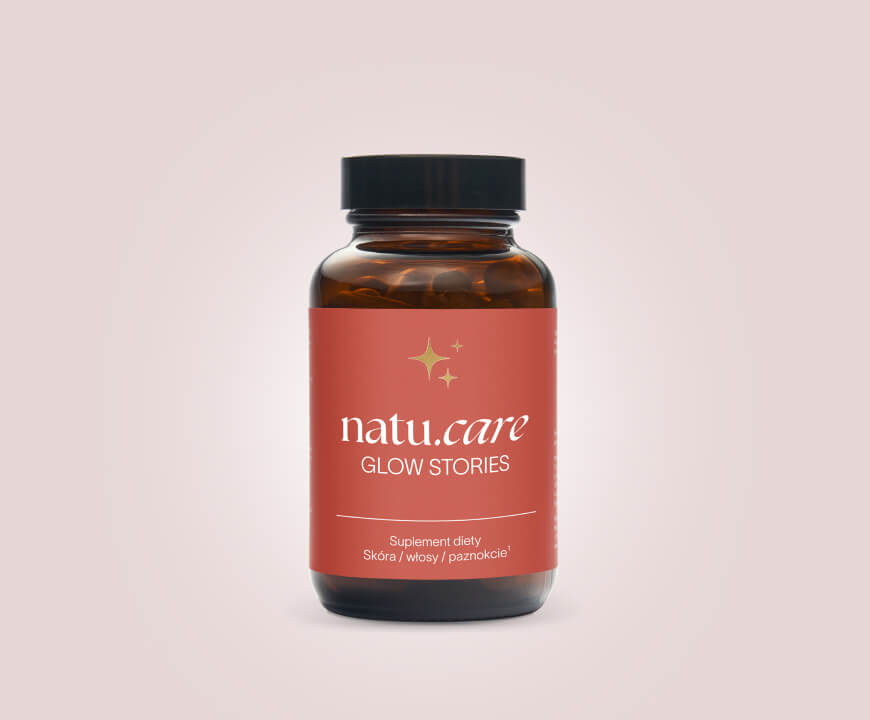
Glow Stories - for healthy skin, hair and nails
.Product with high-quality folic acid Quatrefolic®, bamboo shoot extract and ingredients that have a positive effect on skin, hair and nails.
Vitamin E deficiency
.
Vitamin E deficiency is a rare occurrence. Most people provide it with their food. What factors may contribute to vitamin E deficiencies in the body?
Causes
.
Vitamin E deficiency can be genetic. There are two diseases that affect vitamin E levels in the body: Bassen-Kornzweig syndrome and familial isolated vitamin E deficiency .
Gluten intolerance, chronic pancreatitis, cystic fibrosis or certain liver diseases can also lead to a deficiency of vitamin E . Premature babiesand are also at risk. Their still immature digestive tract can interfere with the absorption of vitamin E .
Vitamin E deficiency also leads to skin problems. It slows down wound healing and results in keratinisation of the skin..
 .
.
Marta Kaczorek Clinical nutritionist
Vitamin E deficiency in the body is affected by alcohol and cigarette abuse. Its absorption can also be reduced by cholesterol-lowering drugs in the blood..
 .
.
Magdalena Ciura Pharmacy technician
.Symptoms
.
The level of vitamin E in the body can be checked using a blood test. With it, the doctor is able to determine whether the patient needs supplementation. In which cases is such a test worth considering?
.
Symptoms of vitamin E deficiency in the body:
- Muscle weaknessand. Vitamin E affects nervous system function. Its deficiency leads to oxidative stress, which weakens muscles. .
- Difficulties with concentration. The consequence of vitamin E deficiency is the breakdown of some neurons. This can result in problems with concentration. .
- Problems with coordination. Vitamin E deficiency also manifests itself in difficulties with walking and coordination. Serious nerve damage and even loss of sensation in the limbs can follow. .
- Deterioration of vision. Lack of sufficient vitamin E leads to a weakening of the light receptors in the retina. In the long term, a deficiency of the youth vitamin can even result in loss of vision.
- Weakening of the immune system.and Studies suggest, that vitamin E deficiency leads to immune system problems.
Effects of vitamin E deficiency include cardiovascular disease, peripheral neuropathies, epilepsy, and Parkinson's or Alzheimer's disease.
 .
.
Magdalena Ciura Pharmacy technician
.How to supplement
.
Vitamin E deficiency can be supplemented through a balanced diet. In some cases, however, this will not be sufficient. Then it is worth reaching for one of the supplements. Before you do this, see your doctor. It is the specialist who should recommend a healthy and safe supplementation.
The demand for vitamin E, increases with the intake of unsaturated fatty acids (EFAs) in the diet. Per gram of EFAs consumed, there should be 0.4 mg of alpha-tocopherol equivalent..
 .
.
Marta Kaczorek Clinical nutritionist
.
Vitamin E excess
.
Vitamin E excess is not common. It most often affects people who take excessive doses of supplements. What is the manifestation of excessive vitamin E intake?"
Symptoms of vitamin E excess:
- gastrointestinal distressand, .
- weakening of the body ,
- blood thinning ,
- internal bleeding ,
- haemorrhagic stroke , .
How to treat?
.
Most commonly, treatment of excess vitamin E includes stopping supplementation and limiting it in the diet. The exceptions are cases where an excess of the vitamin of youth will lead to serious damage in the body. It is then necessary to treat these conditions independently.
Research has shown that a daily supply of vitamin E in high doses (400 IU) may contribute to an increased risk of prostate cancer.
.
 .
.
Marta Kaczorek Clinical nutritionist
.
.
Vitamin E - supplementation
.
Supplementation of vitamin E is rarely necessary. Most of us provide it to the body with our diet. However, in some cases this may not be sufficient. How much vitamin E should we take in?
.
Daily vitamin E requirement
. .
While a standard dose of vitamin E is sufficient during pregnancy, the breastfeeding period is governed by its own rules. This is when the daily requirement for vitamin E is 19 mgand.

Rise&Shine: Collagen (5000 mg) in Mango-Maracuja flavour
Rise&Shine is collagen (5000 mg) in Mango-Maracuja flavour. Proven formulation, great bioavailability and refreshing taste.

Glow Stories - for healthy skin, hair and nails
.Product with high-quality folic acid Quatrefolic®, bamboo shoot extract and ingredients that have a positive effect on skin, hair and nails.
Contraindications
.
Some people should not supplement with vitamin E. Who should be particularly vigilant?
Contraindications to vitamin E supplementation:
.
- .
- heart diseasesand, .
- blood clotting disorders ,
- diabetes ,
- audar , .
- brain, prostate and neck cancer , .
Can children supplement vitamin E?
.
Most children take adequate amounts of vitamin E with their diet. The need for supplementation is rare. Despite the fact that vitamin E is safe for little ones, it is not worth giving it to children on their own. Healthy vitamin E supplementation for children can only be recommended by a specialist.
.
Vitamin E in pregnancy
.
Although vitamin E affects the health of pregnancy, its supplementation is most often unnecessary. Most mums-to-be take it with their daily meals. Research suggests that taking large doses of vitamin E during the first trimester of pregnancy, is safeand.
Vitamin E and breastfeeding
.
Vitamin E is a component of human milk. Therefore, women who are breastfeeding need to take care of its concentration in the body. The daily requirement for the youth vitamin during this period is 19 mg.
.
In most cases, supplementing the diet with products rich in vitamin E is sufficient. Sometimes, however, supplementation is also recommended to make up for the deficiency of vitamin E in the body.
For the most part, vitamin E is not required.
High doses of vitamin E should not be taken with anticoagulants. An exception to this rule is otherwise recommended by your doctor..
 .
.
Magdalena Ciura Pharmacy technician
.Note!
.Healthy and safe supplementation during both pregnancy and breastfeeding should only be recommended by a doctor.
Interactions of vitamin E with drugs
.
Vitamin E can interact with medicines. Which agents are on the blacklist?
.
Vitamin E reacts with:
.
- aspirin, .
- warfarin, .
- tamoxifen, .
Note!
.If you are taking these or other medications, please consult a specialist before starting supplements.
See also:
- B vitamins [properties + where they occur] .
- Vitamin B1 (thiamine) [properties + where it occurs] .
- Vitamin B2 [properties + where it occurs] .
- Vitamin B3 [properties + where it occurs]
- Niacin [what it is + effects and side effects] .
- Vitamin B5 (pantothenic acid) [what it is + properties and excess] .
- Vitamin B6 [where it occurs + deficiency, excess and properties]
- Biotin [what it is + properties and side effects] .
- Biotin for hair [what it gives and effects + ranking]
- Vitamin B9 (folic acid) [what it is + properties and excess] .
- Vitamin B12 [what it helps with + where it occurs] .
- Vitamin C [properties + dosage] .
Summary
.
From this article remember:
.- Vitamin E is a fat-soluble vitamin. .
- Vitamin E has antioxidant properties, promotes skin health, and reduces the risk of heart disease.
- Vitamin E is a fat-soluble vitamin.
- Most vitamin E is found in oils, seeds and nuts. .
- Vitamin E deficiency can be genetic or a consequence of certain diseases. .
- Muscle weakness, difficulty concentrating or impaired vision are some of the symptoms of vitamin E deficiency.
- A vitamin E deficiency manifests itself in weakness, gastrointestinal problems or thinning of the blood.
- The daily requirement of vitamin E for an adult is 15 mg. .
- Vitamin E may react with some medications.
FAQ
.What does vitamin E do?
.Vitamin E supports the prevention of heart disease, has an antioxidant effect, benefits fertility, helps mothers-to-be during pregnancy, reduces the risk of cancer - especially prostate and liver cancer. In addition, it has anticoagulant effects, lowers bad cholesterol in the blood and improves muscle performance and supports vision.
What is the use of vitamin E in cosmetics?
.Vitamin E is a powerful antioxidant, which is why it is often referred to as the 'vitamin of youth'. It also has regenerative, nourishing and moisturising properties. In the right concentrations, it is used to delay cellular ageing.
Vitamin E is an important ingredient in cosmetics, including face creams, hand creams, eye creams or wrinkle creams - especially for sensitive and irritation-prone skin
What are the symptoms of vitamin E deficiency?
.Symptoms of vitamin E deficiency are mainly:
.- anemia, .
- concentration problems, .
- fatigue,
- fatigue.
- muscle aches,
- pain.
- irritation, .
- hair loss, .
- lower immunity, .
- neurological problems, .
- deterioration of vision, .
Vitamin E deficiency can be genetic or is caused by certain diseases, such as pancreatitis, cystic fibrosis or certain liver diseases.
Where is vitamin E found and where is it most abundant?
.The best sources of vitamin E are primarily cold-pressed oils and nuts. You can also find it in pumpkin seeds, cereal grains, cabbage, avocados, fish, poultry, spinach or lettuce. Most vitamin E is found in wheat germ oil, sunflower oil, sunflower seeds, hazelnuts and almonds.
When to take vitamin E?
.The indications for supplementation of vitamin E - whether in drops or tablets - are mainly for diseases of the digestive system, cystic fibrosis, heart and circulatory diseases. It can also be used to support the treatment and prevention of cataracts and macular degeneration.
What not to combine vitamin E with?
.Use vitamin E preparations with caution if you are taking anticoagulants (e.g. warfarin), estrogen drugs (e.g. tamoxifen), cyclosporine (an anti-rejection drug after transplantation), aspirin or vitamin K.
Is excess vitamin E harmful?
.Although vitamin E is difficult to overdose on, the symptoms of excess can be troublesome and dangerous. These include gastrointestinal distress, general weakness, blood thinning and decreased blood clotting, internal bleeding or haemorrhagic stroke, among others.
As for an overdose of vitamin E, it can be dangerous.
To overdose on vitamin E, one would need to take a dose of more than 1,000 mg per day, which is not actually possible without abusing supplements.
.
Sources
.See all
.Asbaghi, O., Choghakhori, R., & Abbasnezhad, A. (2019). Effect of Omega-3 and vitamin E co-supplementation on serum lipids concentrations in overweight patients with metabolic disorders: A systematic review and meta-analysis of randomized controlled trials. Diabetes & Metabolic Syndrome: Clinical Research & Reviews, 13(4), 2525-2531. https://doi.org/10.1016/j.dsx.2019.07.001
Bell, E. F., Hansen, N. I., Brion, L. P., Ehrenkranz, R. A., Kennedy, K. A., Walsh, M. C., Shankaran, S., Acarregui, M. J., Johnson, K. J., Hale, E. C., Messina, L. A., Crawford, M. M., Laptook, A. R., Goldberg, R. N., Van Meurs, K. P., Carlo, W. A., Poindexter, B. B., Faix, R. G., Carlton, D. P., ... Higgins, R. D. (2013). Serum Tocopherol Levels in Very Preterm Infants After a Single Dose of Vitamin E at Birth. Pediatrics, 132(6), e1626-e1633. https://doi.org/10.1542/peds.2013-1684
Boskovic, R., Gargaun, L., Oren, D., Djulus, J., & Koren, G. (2005). Pregnancy outcome following high doses of Vitamin E supplementation. Reproductive Toxicology, 20(1), 85-88. https://doi.org/10.1016/j.reprotox.2005.01.003
Burbank, A. J., Duran, C. G., Pan, Y., Burns, P., Jones, S., Jiang, Q., Yang, C., Jenkins, S., Wells, H., Alexis, N., Kesimer, M., Bennett, W. D., Zhou, H., Peden, D. B., & Hernandez, M. L. (2018). Gamma tocopherol-enriched supplement reduces sputum eosinophilia and endotoxin-induced sputum neutrophilia in volunteers with asthma. Journal of Allergy and Clinical Immunology, 141(4), 1231-1238.e1. https://doi.org/10.1016/j.jaci.2017.06.029
.Effects of Vitamin E on Cognitive Performance during Ageing and in Alzheimer's Disease-PMC. (n.d.). Retrieved 17 March 2023, from https://www.ncbi.nlm.nih.gov/pmc/articles/PMC4276978/
Emami, M. R., Safabakhsh, M., Alizadeh, S., Asbaghi, O., & Khosroshahi, M. Z. (2019). Effect of vitamin E supplementation on blood pressure: A systematic review and meta-analysis. Journal of Human Hypertension, 33(7), Article 7. https://doi.org/10.1038/s41371-019-0192-0
Jaffary, F., Faghihi, G., Mokhtarian, A., & Hosseini, S. M. (2015). Effects of oral vitamin E on treatment of atopic dermatitis: A randomized controlled trial. Journal of Research in Medical Sciences : The Official Journal of Isfahan University of Medical Sciences, 20(11), 1053-1057. https://doi.org/10.4103/1735-1995.172815
Keen, M. A., & Hassan, I. (2016). Vitamin E in dermatology. Indian Dermatology Online Journal, 7(4), 311. https://doi.org/10.4103/2229-5178.185494
Kim, G. H., Chung, J. W., Lee, J. H., Ok, K. S., Jang, E. S., Kim, J., Shin, C. M., Park, Y. S., Hwang, J.-H., Jeong, S.-H., Kim, N., Lee, D. H., & Kim, J.-W. (2015). Effect of vitamin E in nonalcoholic fatty liver disease with metabolic syndrome: A propensity score-matched cohort study. Clinical and Molecular Hepatology, 21(4), 379-386. https://doi.org/10.3350/cmh.2015.21.4.379
Office of Dietary Supplements-Vitamin E. (n.d.). Retrieved 17 March 2023, from https://ods.od.nih.gov/factsheets/VitaminE-HealthProfessional/
Pizzino, G., Irrera, N., Cucinotta, M., Pallio, G., Mannino, F., Arcoraci, V., Squadrito, F., Altavilla, D., & Bitto, A. (2017). Oxidative Stress: Harms and Benefits for Human Health. Oxidative Medicine and Cellular Longevity, 2017, 8416763. https://doi.org/10.1155/2017/8416763
Sadeghi, N., Paknezhad, F., Rashidi Nooshabadi, M., Kavianpour, M., Jafari Rad, S., & Khadem Haghighian, H. (2018). Vitamin E and fish oil, separately or in combination, on treatment of primary dysmenorrhea: A double-blind, randomized clinical trial. Gynecological Endocrinology, 34(9), 804-808. https://doi.org/10.1080/09513590.2018.1450377
Schuelke, M. (1993). Ataxia with Vitamin E Deficiency. IN M. P. Adam, G. M. Mirzaa, R. A. Pagon, S. E. Wallace, L. J. Bean, K. W. Gripp, & A. Amemiya (Ed.), GeneReviews®. University of Washington, Seattle. http://www.ncbi.nlm.nih.gov/books/NBK1241/
Ulatowski, L., Parker, R., Warrier, G., Sultana, R., Butterfield, D. A., & Manor, D. (2014). Vitamin E is essential for Purkinje neuron integrity. Neuroscience, 260, 120-129. https://doi.org/10.1016/j.neuroscience.2013.12.001
Vitamin E. (2021). In Drugs and Lactation Database (LactMed®) [Internet]. National Institute of Child Health and Human Development. https://www.ncbi.nlm.nih.gov/books/NBK500951/
.
Editorials
Meet the team


Editor
Graduate of Journalism and Artes Liberales at the University of Warsaw. Since 2017, he has been working with the biggest portals in Poland and abroad as an editor. Previously worked for 3 years in one of the leading pharmaceutical companies - he knows the health and beauty industry inside out. In his free time, he most enjoys playing tennis or skiing.
![Vitamin B12 - where it occurs in the diet and in products [table].](https://cdn-resources.natu.care/uploads/1/balanced_diet_nutrition_healthy_eating_concept_food_sources_rich_vitamin_b12_cobalamin_kitchen_table_1_b84f75bda2.jpg)
Find out where vitamin B12 is found and which products will provide you with it.

Vitamin PP also known as niacin or vitamin B3 supports the proper functioning of the body.
![What is NMN? Effects, effects, side effects [supplements].](https://cdn-resources.natu.care/uploads/1/science_background_with_molecule_atom_abstract_structure_science_medical_background_3d_illustration_1_a5ec4d9cec.jpg)
Everything you want to know about NMN: properties, effects, safety and expert opinions.
